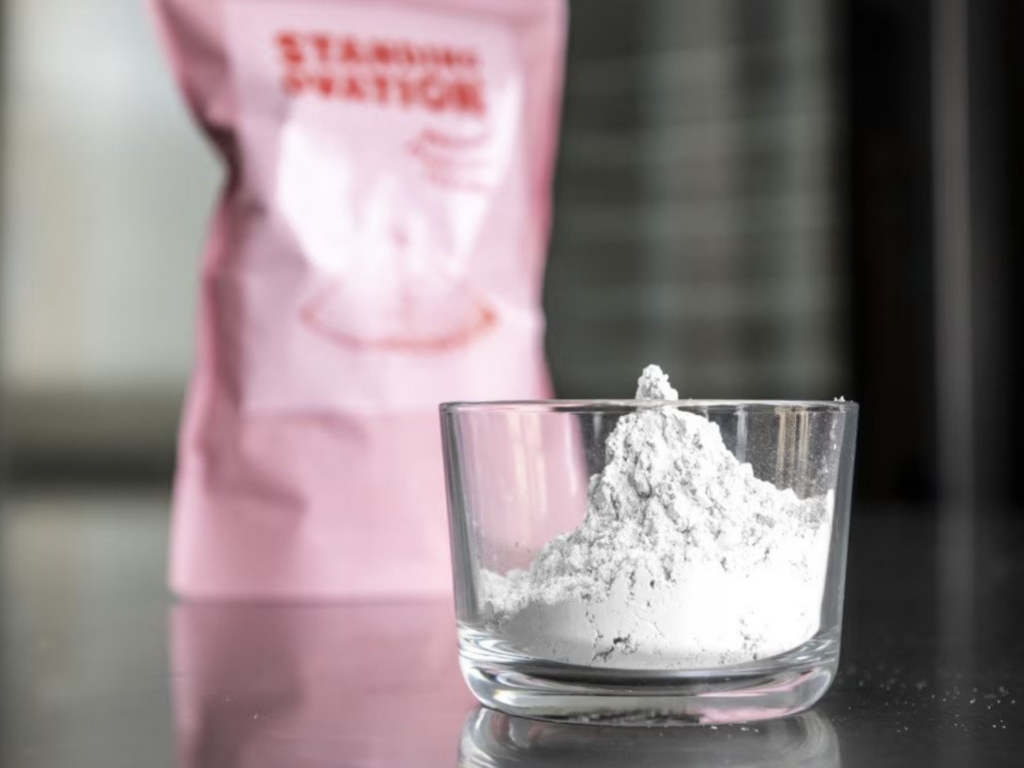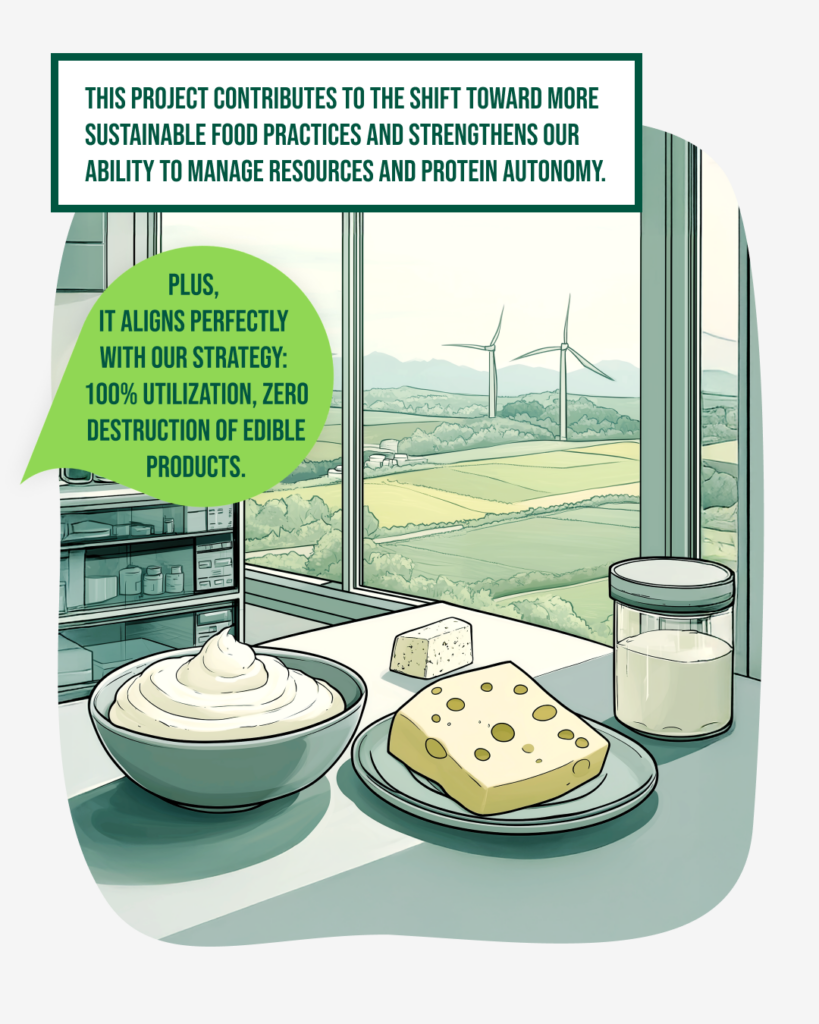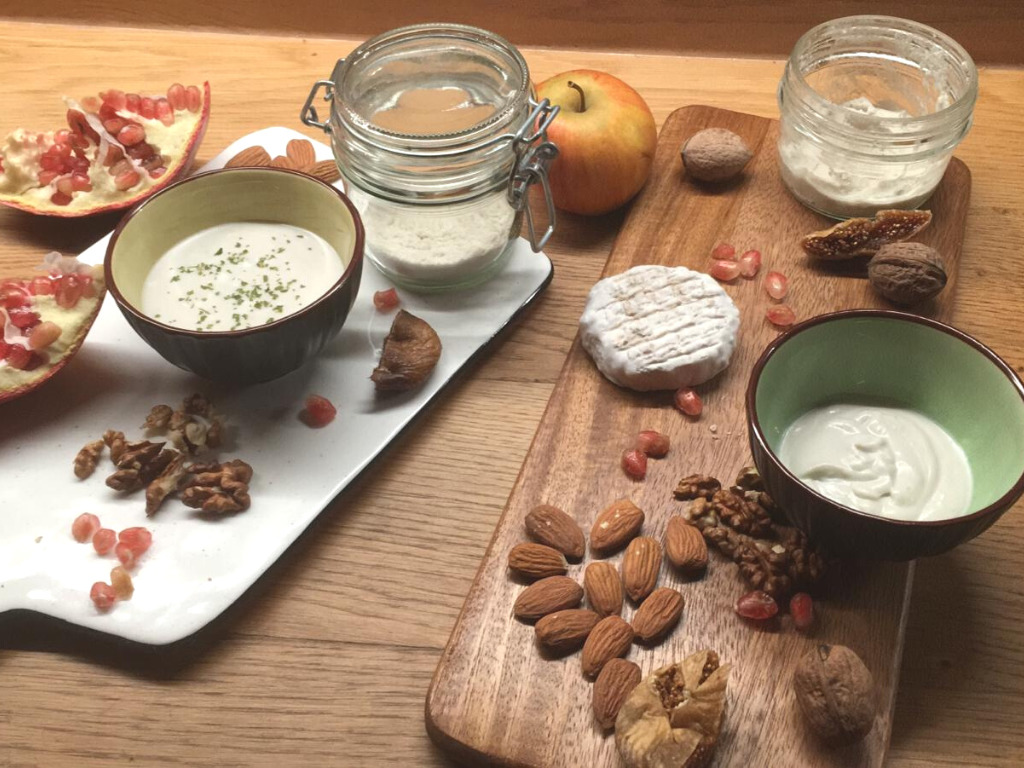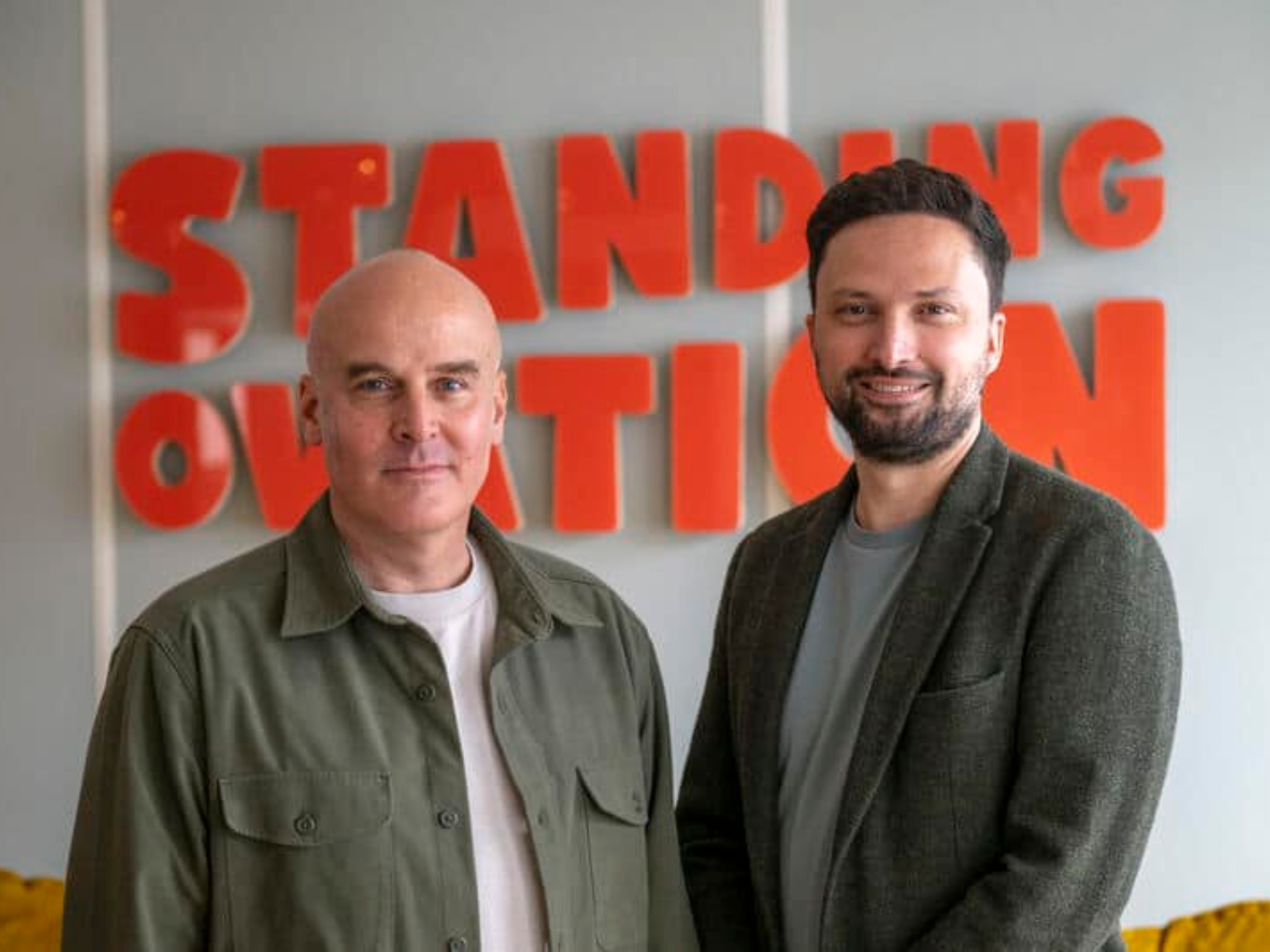French Startup to Create Recombinant Milk Proteins from Bel Group’s Whey Waste
5 Mins Read
Bel Group France has partnered with portfolio company Standing Ovation to upcycle its whey waste to produce precision-fermented casein proteins.
What if waste from cow’s milk could help create next-generation dairy products?
That’s exactly what French startup Standing Ovation is hoping to do. It has developed a method to transform acid whey – the dairy industry’s biggest waste product – into its precision fermentation process to make recombinant casein proteins.
It will use whey serum supplied by dairy giant Bel Group (an investor in Standing Ovation), reducing food waste and contributing to the circular economy. Around 80-90% of milk that enters cheese manufacturing facilities ends up as whey. Globally, between 180 and 190 million tonnes of the liquid is produced annually.

“Whey, a byproduct of the dairy industry, contains sugars such as lactose and galactose. These sugars are fermented using a proprietary process developed by Standing Ovation, resulting in the production of casein, the primary protein found in milk,” explains Standing Ovation co-founder and scientific director Romain Chayot. He adds that the industrial process is compatible with all types of whey.
“Standing Ovation’s technology, combined with our cheese-making expertise, enables us to put this technological innovation into practice, opening up a whole new world of possibilities for imagining tomorrow’s recipes and products, combining nutritional quality, accessibility and responsibility,” adds Caroline Sorlin, director of investments and collaborations at Bel Group.
Standing Ovation diversifies client base with whey process
Precision fermentation combines the process of traditional fermentation with the latest advances in biotechnology to efficiently produce a compound of interest. In Standing Ovation’s case, this is casein, which makes up 80% of the protein content found in milk.
The protein is responsible for emulsification, stabilisation and gelation, giving dairy products many of the functional properties that make them desirable – think the melt and stretch of cheese, or the creaminess of ice cream.
“Standing Ovation’s proprietary process converts agricultural sugars, such as glucose and sucrose, into proteins through precision fermentation,” Chayot tells Green Queen.
He adds that using Bel Group’s whey allows the company to diversify its portfolio and customer base: “These two production systems will continue to operate in parallel – one serving the vegan market, and the other targeting the dairy industry by supplementing traditional products with Standing Ovation’s caseins.”

Yvan Chardonnens, CEO of Standing Ovation, outlines how the acid whey serum contains minerals, sugar (from lactose), organic acids, and very little protein. “No traces of lactose from acid serum are found in the casein powder obtained by precision fermentation using the Standing Ovation process,” he tells Green Queen when asked about concerns around allergenicity and intolerances. (Since this is a bioidentical protein, it isn’t suitable for those with dairy allergies.)
“The volumes of serum that can be processed using Standing Ovation’s technology are substantial,” he adds. “From the current capacity of several cubic meters, we plan to scale up progressively to millions of cubic meters per year. Discussions with stakeholders across multiple continents are already underway.”
While the company hasn’t disclosed the financials involved in the deal with Bel – or whether it is obtaining the whey for free – it has been working with another industry behemoth, Ajinomoto Foods Europe, to co-manufacture the recombinant casein at its industrial-scale plant in northern France.
Tariffs make Standing Ovation rethink strategy
While about half of all whey is processed into added-value products like protein powders, functional foods, edible films and coatings, and lactic acid, a significant amount is left unused. Moreover, whey disposal is a costly process – its biochemical oxygen demands are significantly higher than wastewater, and it can pose risks to farmland. Up to 47% of the whey from the cheese industry is discharged into water bodies, causing pollution, ecological imbalances, and uncontrolled microbial growth.
It underscores the need for solutions like Standing Ovation’s. The company says a lifecycle assessment shows its Advanced Casein protein generates 94% fewer greenhouse gas emissions when produced from plant-based sugars. Since this new process valorises a waste stream, the environmental wins could be “even more advantageous when derived from acid whey”, according to Chayot.
“The life-cycle assessment is currently undergoing certification, and the precise environmental impact will depend in part on the purchase price of the whey,” he says.
Asked if Standing Ovation and Bel Group are co-creating products, Chardonnens says: “We are a protein-focused company operating in the B2B sector; however, we consistently offer our clients the opportunity to share our efforts towards the discovery of new dairy applications formulated using our advanced caseins.”

Several major dairy players are already using the recombinant casein to develop new products, primarily targeting the US market for 2026-27. The startup – which has raised €23M to date – has previously indicated it’s working towards regulatory approval in the US for 2026 and the EU for 2027. So far, only New Culture and Fermify are cleared to sell animal-free casein stateside, both obtaining self-determined GRAS (Generally Recognized as Safe) status last year.
The FDA’s self-affirmation pathway is under threat, with Health Secretary Robert F Kennedy Jr suggesting he is looking to potentially scrap the rule. “We never considered a simple self-GRAS system for commercialisation, but a certified GRAS,” says Chardonnens.
That said, the ongoing tariff war is also making the company revamp its plans. “Tariffs are pushing us to consider other markets than the US more quickly, and open a Standing Ovation branch in the US next year,” he says.
The partnership with Bel comes weeks after researchers in Denmark and Mexico developed a process to upcycle whey into sustainable single-cell proteins through fermentation. Bel Group, meanwhile, has invested €9M in a collaborative project to make better-tasting vegan cheese for its brands, which include Babybel, The Laughing Cow, and Boursin.



